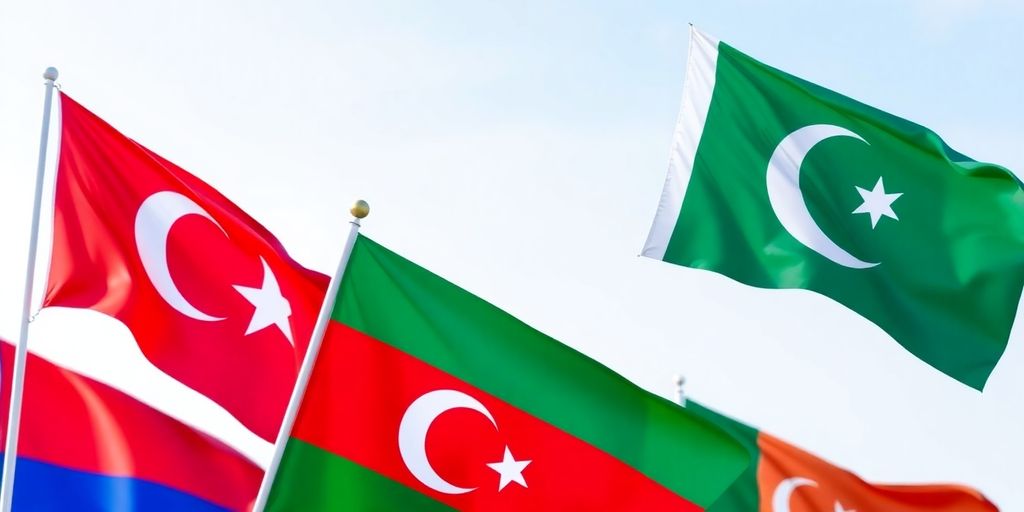Tensions between India and Pakistan have escalated following India’s recent military operation, dubbed "Operation Sindoor," which targeted alleged terrorist infrastructure in Pakistan. In response, Turkey and Azerbaijan have expressed their support for Pakistan, urging restraint and diplomatic solutions to prevent further conflict.
Key Takeaways
- Turkey and Azerbaijan have condemned India’s military actions against Pakistan.
- Turkish President Erdogan has offered support to Pakistan’s Prime Minister Shehbaz Sharif.
- Both countries emphasize the need for diplomatic dialogue to resolve tensions.
Background of The Conflict
The recent military operation by India, which occurred on May 6, 2025, has been described as one of the most significant escalations in the long-standing conflict between the two nuclear-armed neighbors. India claims that the operation was necessary to dismantle terrorist camps that threaten its national security. However, Pakistan has vehemently denied these allegations, asserting that it was not involved in any terrorist activities.
International Reactions
In the wake of these developments, Turkey and Azerbaijan have taken a firm stance in support of Pakistan:
- Turkey’s Response: President Erdogan reached out to Prime Minister Sharif, expressing Turkey’s solidarity and readiness to help de-escalate tensions. Erdogan condemned the Indian strikes and called for a calm and measured response from Pakistan.
- Azerbaijan’s Position: The Azerbaijani government also condemned the military actions against Pakistan, expressing concern over the escalation of violence and offering condolences to the victims of the attacks.
Calls for Restraint
Both Turkey and Azerbaijan have urged India and Pakistan to exercise restraint and engage in dialogue to resolve their differences. The Turkish Foreign Ministry stated that the recent military actions could lead to an all-out war, emphasizing the need for common sense and diplomatic efforts to prevent further escalation.
The Role of Other Nations
Other nations, including Qatar, have also expressed concern over the rising tensions. Qatar’s foreign ministry has called for maximum restraint from both sides and encouraged a diplomatic approach to resolving the crisis. This highlights the international community’s growing concern over the potential for conflict in the region.
Conclusion
As the situation continues to develop, the support from Turkey and Azerbaijan for Pakistan underscores the complex geopolitical dynamics in South Asia. The international community is closely monitoring the situation, hoping for a peaceful resolution to the ongoing tensions between India and Pakistan. The calls for restraint and dialogue from various nations reflect a collective desire to avoid further escalation and ensure stability in the region.
Sources
- China, Turkey Criticize India’s Operation Sindoor in Pakistan, Deccan Herald.
- Türkiye ready to do ‘its utmost’ to ease tension between India and Pakistan: President Erdogan, Latest news from Azerbaijan.
- Erdogan conveys Turkey’s solidarity to Pakistan PM amid crisis with India, Reuters.
- Turkey, Azerbaijan back Pakistan after Operation Sindoor; Qatar urges restraint, Hindustan Times.






